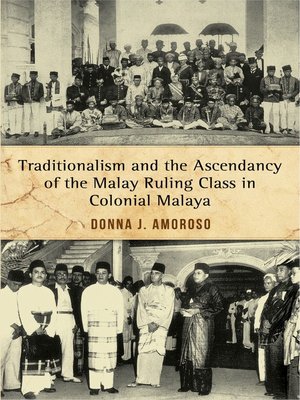Traditionalism and the Ascendancy of the Malay Ruling Class in Colonial Malaya
ebook
By Donna J. Amoroso

Sign up to save your library
With an OverDrive account, you can save your favorite libraries for at-a-glance information about availability. Find out more about OverDrive accounts.
Find this title in Libby, the library reading app by OverDrive.



Search for a digital library with this title
Title found at these libraries:
| Library Name | Distance |
|---|---|
| Loading... |
In this original and perceptive study Donna J. Amoroso argues that the Malay elites' preeminent position after the Second World War had much to do with how British colonialism reshaped old idioms and rituals – helping to (re)invent a tradition. In doing so she illuminates the ways that traditionalism reordered the Malay political world, the nature of the state and the political economy of leadership. In the postwar era, traditionalism began to play a new role: it became a weapon which the Malay aristocracy employed to resist British plans for a Malayan Union and to neutralise the challenge coming from groups representing a more radical, democratic perspective and even hijacking their themes. Leading this conservative struggle was Dato Onn bin Jaafar, who not only successfully helped shape Malay opposition to the Malayan Union but was also instrumental in the creation of the United Malays National Organisation (UMNO) that eventually came to personify an 'acceptable Malay nationalism'. Traditionalism and the Ascendancy of the Malay Ruling Class in Colonial Malaya is an important contribution to the history of colonial Malaya and, more generally, to the history of ideas in late colonial societies.







